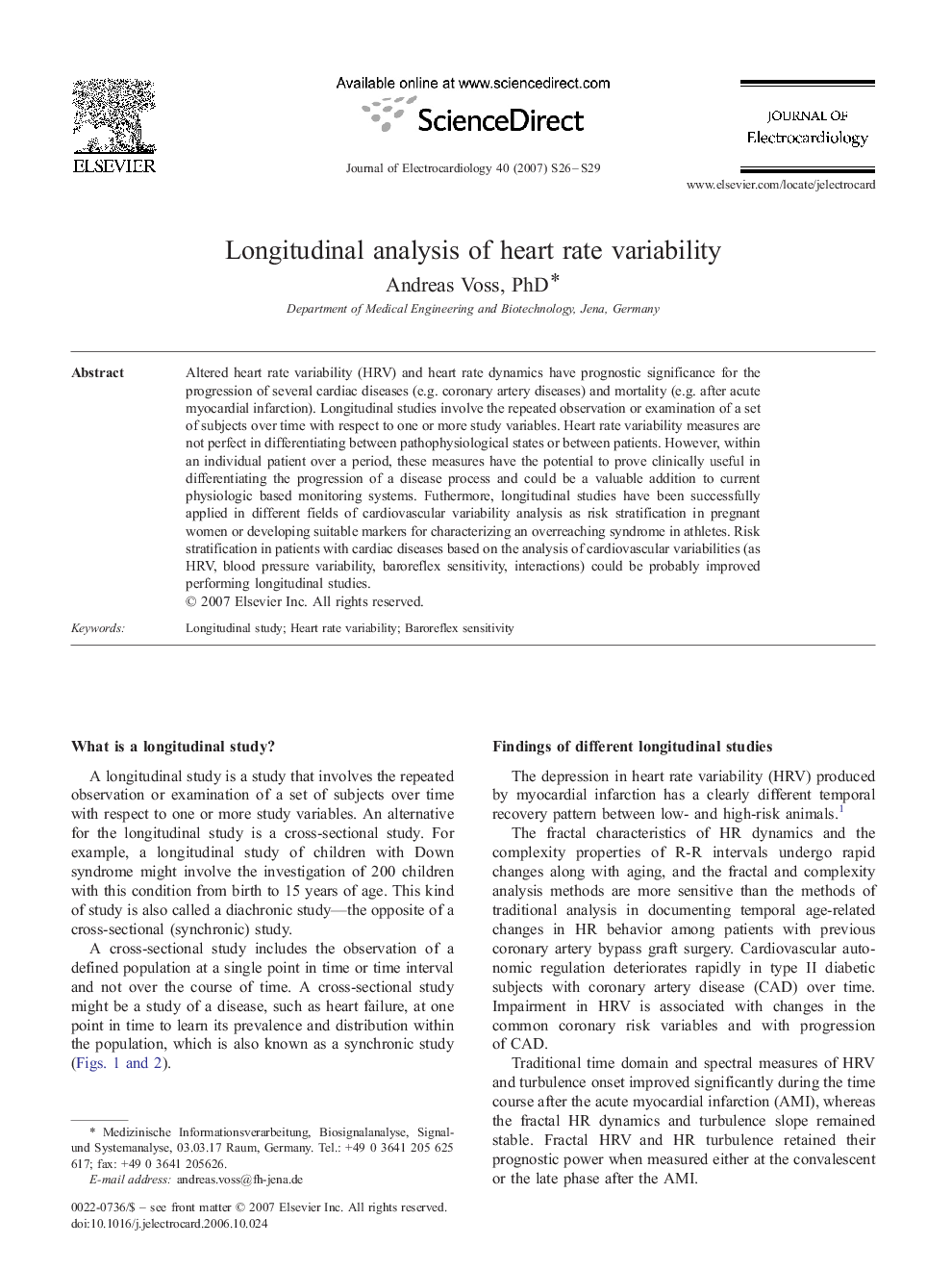| Article ID | Journal | Published Year | Pages | File Type |
|---|---|---|---|---|
| 2968559 | Journal of Electrocardiology | 2007 | 4 Pages |
Altered heart rate variability (HRV) and heart rate dynamics have prognostic significance for the progression of several cardiac diseases (e.g. coronary artery diseases) and mortality (e.g. after acute myocardial infarction). Longitudinal studies involve the repeated observation or examination of a set of subjects over time with respect to one or more study variables. Heart rate variability measures are not perfect in differentiating between pathophysiological states or between patients. However, within an individual patient over a period, these measures have the potential to prove clinically useful in differentiating the progression of a disease process and could be a valuable addition to current physiologic based monitoring systems. Futhermore, longitudinal studies have been successfully applied in different fields of cardiovascular variability analysis as risk stratification in pregnant women or developing suitable markers for characterizing an overreaching syndrome in athletes.Risk stratification in patients with cardiac diseases based on the analysis of cardiovascular variabilities (as HRV, blood pressure variability, baroreflex sensitivity, interactions) could be probably improved performing longitudinal studies.
